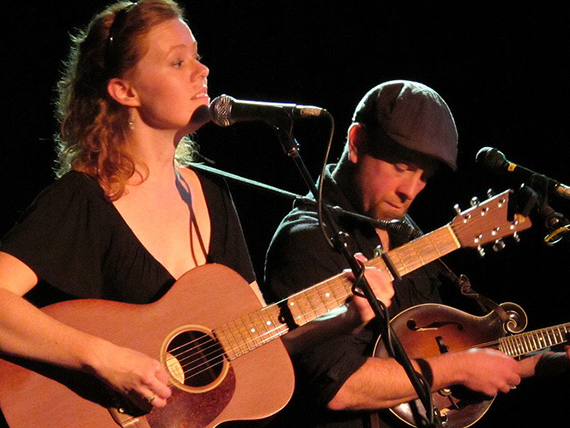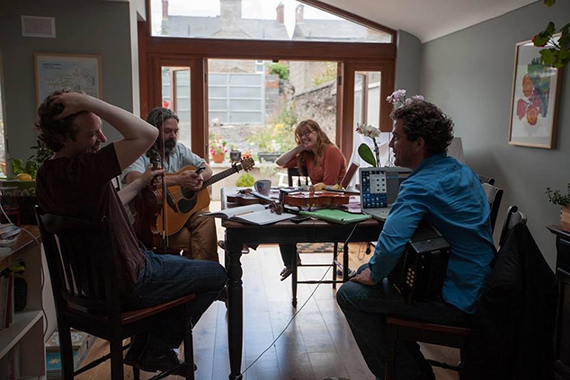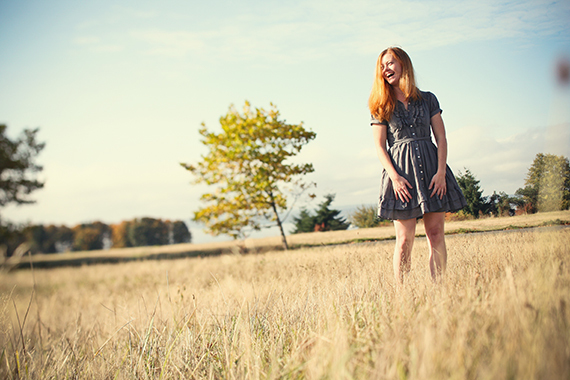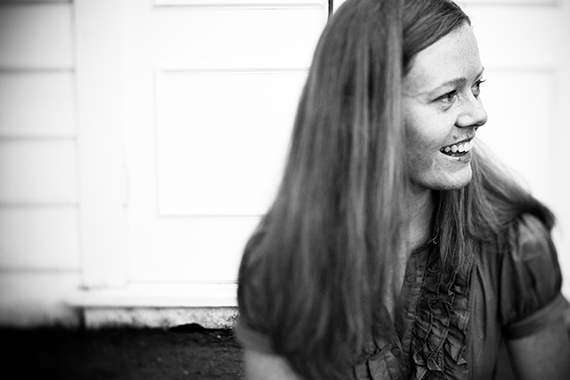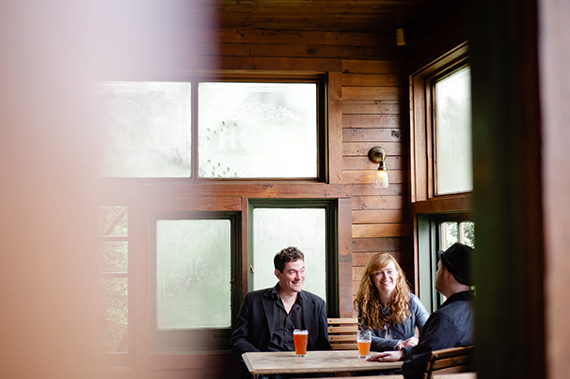Ask almost any artist, and he or she will tell you the expression of art is about far more than the art form itself. Painting goes beyond canvas and oils. Dancing is not just about choreography. Acting is more than memorizing and repeating lines. And for Colleen Raney, Irish singer, singing and music transcend sounds and lyrics and tunes, to serve a much greater purpose: connection.
"Live interaction with people, telling of stories, exchange of information, the ability to learn from the solidarity of shared experience as reflected in music," these are what Colleen values about music, about art. "We have been conditioned by so much of our day-to-day life to fear any sort of emotional connection or investment, to avoid vulnerability, to surpass our own humanity. This struggle is where art lives."
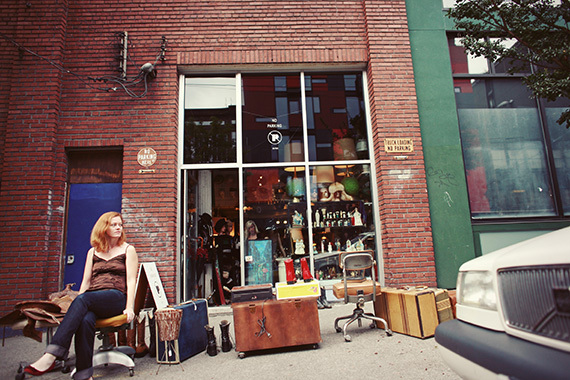
Photography by Della Chen
Though Colleen didn't initially set out to be a musician, in the crisp vision of hindsight, her path seems inevitable.
Colleen, who now lives in Portland, Oregon, grew up in Seattle, where she spent her childhood Irish dancing and singing in church and school choirs. In Colleen's family, music was simply a part of everyday family life. "Something to love. Something to feel connected to. Just a thing we did," she says, "but never because it was our job. [My brother] Mark is a doctor, for example, and my sisters are teachers, and accountants, and real estate agents. I was in school studying engineering first and then moved over to theatre. I finished an MFA in acting in 2001 and still was just playing with Mark and with [the musical group] Magical Strings because it was a fun thing to do and not because it was my job. I taught high school for three years and moved to New York where I quickly found work as an actor and traveled and toured for a few years."
Even with moving into theatre, music still didn't take its hold on Colleen for a few more years. Colleen studied voice in high school, college, grad school, and then professionally in New York, but it wasn't until the late 2000s that she picked up the guitar and bodhrán and started playing them again.
"I moved home from New York to deal with a family issue, and wasn't really sure what I was going to do -- stay or go back -- when I ran into (musician) Hanz Araki at a party. We decided to make an album then (2008) and recorded Linnet, my first of four albums, that autumn. That's when Irish music became a career in addition to a personal interest."
What inspires Colleen these days? "At the moment, the thing that is most inspiring, musically and otherwise, is authenticity. By that I don't mean pedigree, or immersion, or legitimacy. I mean the sense that you get from a person, piece of music, painting, meal, conversation, that there is something present there that is real, and gritty, and substantial. The quiet center of things is where I find most of my interest and inspiration. I seek the heart of matters, of people, of songs, of melodies."
To Colleen, music and art offer a way for us to move beyond the masks and walls we all live with, even if only for a short time, and truly connect. "The veil that comes down when a show starts is fear. I don't mean stage fright (that doesn't ever go away). I mean the fear of vulnerability that many of us put on every morning as we begin our day. It gets checked at the door when people come in because we all agree to suspend reality for a tiny bit and live in a world where saying exactly how you feel about something or expressing a big emotion or thought doesn't create awkward responses and emotional distance."
Connecting without those barriers is vulnerable, but yet, says Colleen, "We want to experience it, either from a performer's perspective, or from an audience experience. We want to be moved, to be changed, to emerge somehow subtly, but significantly different. We want to feel something. We want to feel like feeling something is okay. And we place our trust and our hope and expectation on the artist to provide that opportunity for us -- the place where we get to not feel lost for a little while because someone has this under control. That is a deep responsibility and an incredible honor."
"I think we all feel a little lost. Not everybody all the time, but everybody feels lost at one point or another in their lives. Some folks more often than others. We see these brightly packaged options for when we feel lost. Midlife crisis. Fancy vacation. Career change. Dramatic appearance change. Entire industries exist because we come face to face with our fragility at some point in our lives. Because feeling lost is hard. It's made up of feeling vulnerable and scared and alone and we doubt and we feel foolish and we don't know where to turn."
As for her chosen genre, Colleen believes there's something about folk music that has a lasting appeal to people, a staying power, a core truth and appeal that survive trends and time. "Folk music traditions carry these stories, lessons, emotions, reflections, fantasies, and possible solutions in them as well. Generations of people have experienced a thing enough to preserve a song from some time in the 14th century -- that can be pretty reassuring in a lot of ways."
The folk arts -- music, gardening, canning, knitting, old time gatherings, swing dance communities, etc. -- are popular, she believes, because, "I think it's the way back to self.... It makes us feel a little less lost and a little more connected to a history of things that got us here in the first place."
Photography by Kimi Kolba
What does Colleen want from her career, from life? "To be a part of something that has value, integrity, elegance, depth, and respect. If I am to be recognized at all, I'd like it to be as a contributor rather than a maverick. Why does a person perform rather than just stay home and play the music for the love of the music? The answer isn't that I think I have any particular value over anyone else. It's maybe that my contribution is as a conduit. For the history, for the legacy, for the simple and inherent beauty of traditional song. When I perform, these days, the thing that feels joyful is similar to the feeling a person gets when he or she opens up a very old book. Touching something far bigger, that has been here for a lot longer than I have. The gossamer thread that binds one generation to another. To know that these words and these notes were sung a hundred years ago by someone else sitting on a different continent for different reasons. It's like having Alice's looking glass in a lot of ways."
Colleen is currently touring the Pacific Northwest with appearances in the Northeast and California through the summer and autumn. For booking information contact info@littlesearecords.com.
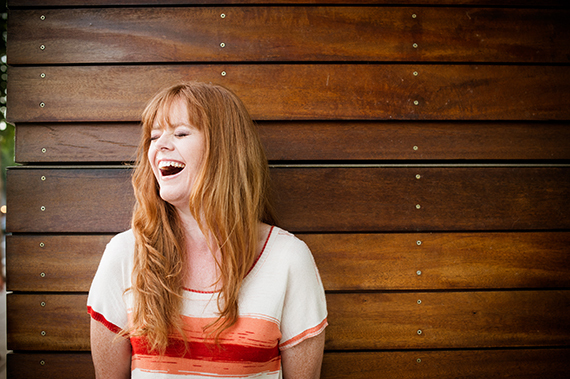
Photography by Jilly Lancaster
Also published at pamstucky.com.

